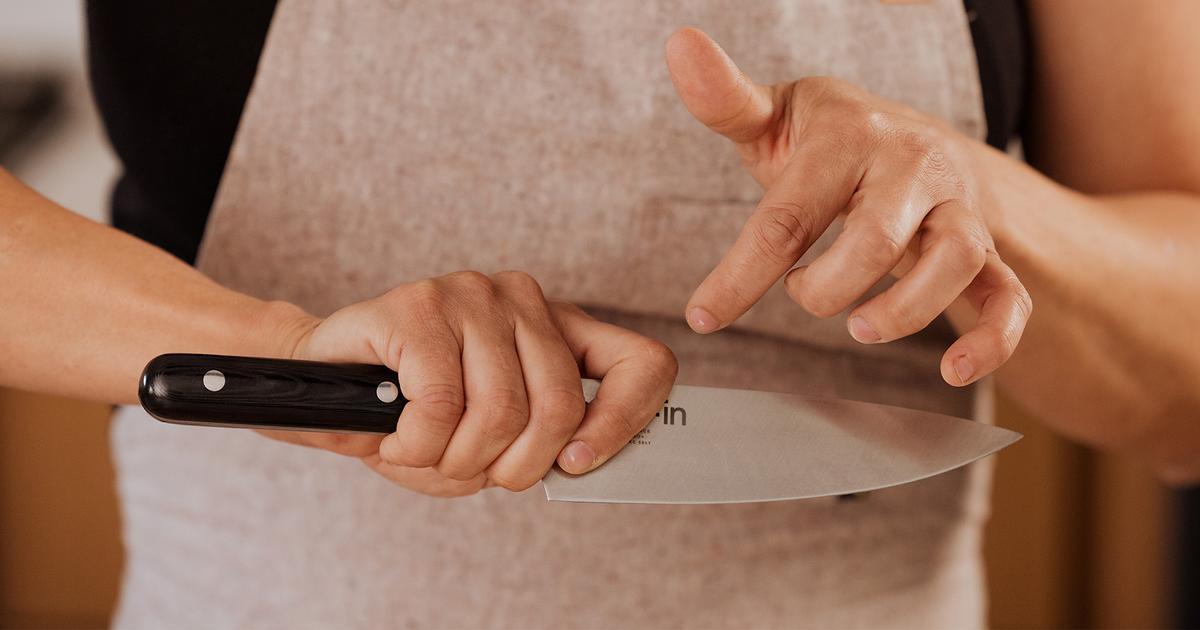When it comes to the world of culinary arts, few tools are as revered as the German knife. Known for their durability and precision, these knives have become a staple in professional kitchens around the globe. The main question on every kitchen professional's mind is, what do chefs say about German knives?
German knives have a storied reputation. Many chefs praise their balanced weight, sturdy design, and the ability to maintain a sharp edge over time. In this article, we delve into the specifics of why German knives are held in such high regard by culinary experts.

The Craftsmanship Behind German Knives
German knives are renowned for their exceptional craftsmanship. The legacy of knife-making in Germany dates back centuries, with Solingen, often referred to as the 'knife capital of the world', playing a pivotal role in this tradition. The process involves meticulous forging techniques that ensure each knife is not only functional but also a work of art. Chefs often highlight the resilience of the blades, which are typically made from high-carbon stainless steel, allowing for both sharpness and resistance to corrosion.
For more on the rich history and craftsmanship of these knives, check out this brief history of German knife making.
Why Chefs Prefer German Knives
The preference for German knives among chefs can be attributed to several factors. First and foremost is the balance and heft they offer. Unlike lighter knives, German knives provide a weight that many chefs find useful for tasks that require more force, such as chopping through thick vegetables or cutting meat.
Moreover, the ergonomic design of the handles ensures comfort during prolonged use. This is a critical aspect for chefs who spend countless hours in the kitchen. The full-tang construction, where the blade extends through the handle, offers enhanced stability and control. For further insights into choosing the right knife, you might explore German knives for professionals.
Durability and Maintenance
Another key aspect that chefs appreciate is the durability of German knives. The robust construction means these knives can withstand rigorous use without losing their edge. Additionally, they are relatively easy to maintain. Regular sharpening with a honing steel can keep the blades in prime condition.
Chefs often note that while German knives require some maintenance, the longevity of the knife is well worth the effort. For tips on how to care for your knives, you can refer to this guide on knife care tips.
Comparing German and Japanese Knives
In the debate of German versus Japanese knives, chefs often weigh the pros and cons specific to their culinary needs. German knives are typically heavier and thicker, making them ideal for tasks that require force. On the other hand, Japanese knives are lighter and designed for precision work.
Chefs may choose a German knife for its versatility, as it can handle a wide range of kitchen tasks efficiently. The robustness of German knives makes them a favorite for many professionals who require a reliable tool. For more on this comparison, heres an article discussing German vs Japanese knives.
Conclusion: A Chefs Best Friend
In conclusion, German knives hold a special place in the hearts of chefs worldwide. Their balance, durability, and precision make them indispensable in the kitchen. The craftsmanship that goes into each knife ensures that chefs are equipped with a tool that can handle any culinary challenge.
For those interested in exploring the aesthetic appeal of these knives, this piece on German knife aesthetics offers a fascinating look at the artistry involved.

FAQ
What makes German knives different from others?
German knives are known for their durability, balance, and robust construction. They often feature high-carbon stainless steel blades that provide a sharp, long-lasting edge suitable for various kitchen tasks.
Are German knives suitable for all types of cooking?
Yes, the versatility of German knives makes them suitable for a wide range of cooking styles. Their sturdy design allows them to handle everything from chopping vegetables to slicing meat efficiently.
How often should I sharpen my German knife?
Regular honing can keep your German knife sharp. Depending on usage, you might need to sharpen it every few months. It's also advisable to follow manufacturer guidelines for specific care instructions.


























